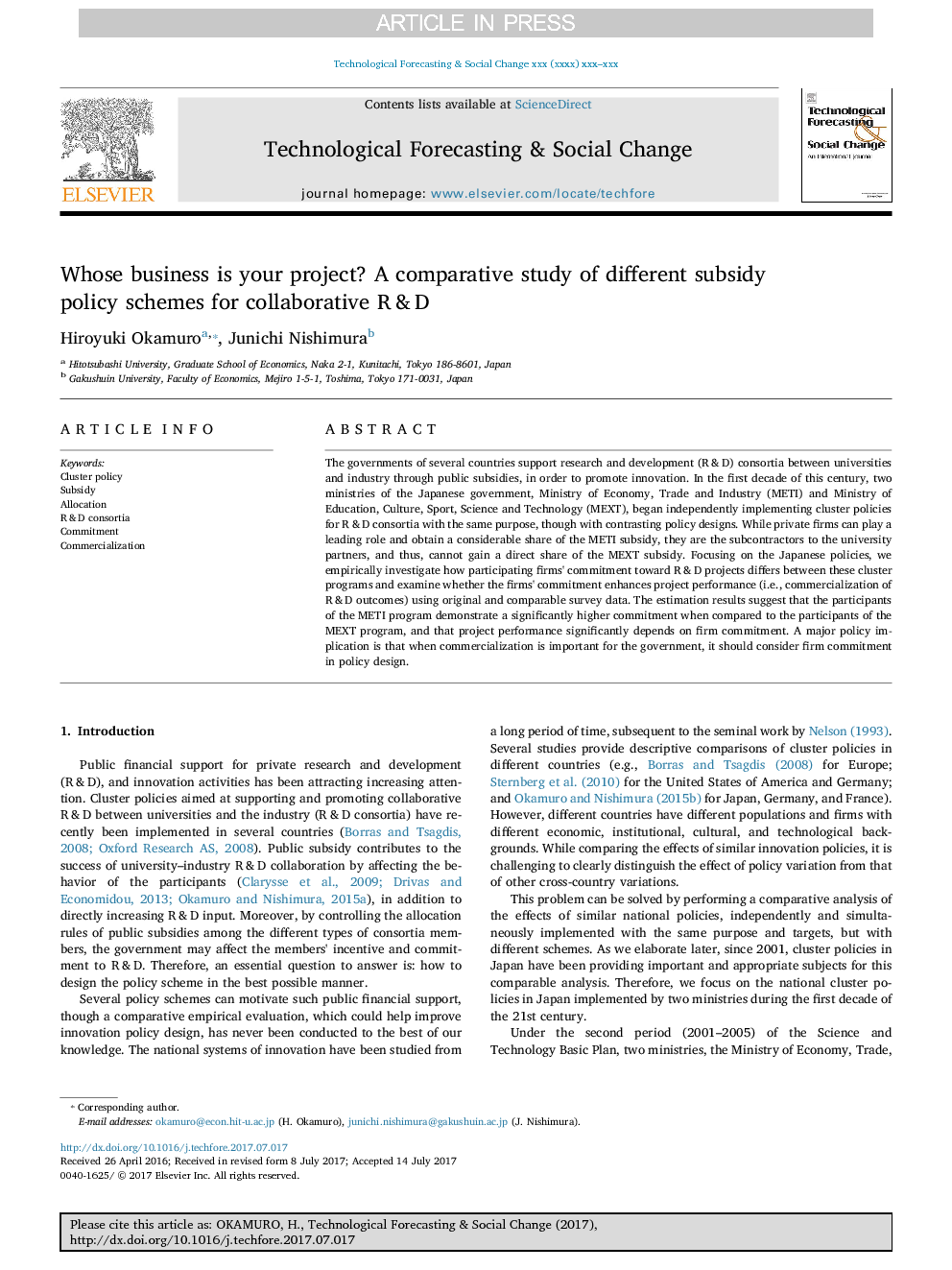ترجمه فارسی عنوان مقاله
کسب و کار شما پروژه شما است؟ مطالعه تطبیقی طرح های سیاست های مختلف یارانه برای تحقیق و توسعه مشارکتی
عنوان انگلیسی
Whose business is your project? A comparative study of different subsidy policy schemes for collaborative R&D
| کد مقاله | سال انتشار | تعداد صفحات مقاله انگلیسی |
|---|---|---|
| 96150 | 2018 | 12 صفحه PDF |
منبع

Publisher : Elsevier - Science Direct (الزویر - ساینس دایرکت)
Journal : Technological Forecasting and Social Change, Volume 127, February 2018, Pages 85-96
ترجمه کلمات کلیدی
سیاست خوشه ای، کمک مالی، اختصاص دادن، تحقیق و توسعه کنسرسیوم، تعهد، تجاری سازی،
کلمات کلیدی انگلیسی
Cluster policy; Subsidy; Allocation; R&D consortia; Commitment; Commercialization;

